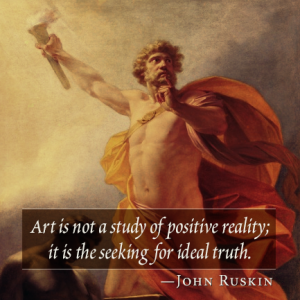Happy Mother’s Day, Memorial Day, whatever you celebrate this May. Our monthly theme is journeys, travels of the body, mind and spirit.
Some journeys are literal, such as the fictional heroic journeys in Brant Waldeck’s novel Guardians of the Scepter (reviewed by Bruce Roberts), while others involve observations and conjectures, such as Geoff Marcy and other scientists’ search for faraway exoplanets.
Some contributors travel in time. Literally, as Christian Marclay does through freezing and recording daily moments in his clock installation at San Francisco’s MOMA, or through artistic tribute or empathetic imagination.
Several writers introduce elements of the old into the modern, providing comparisons and expanding the relevance of their works. Emily Allen brings older music into her modern afternoon in her prose sketch Four Chords and the Truth, and Christopher Bernard reviews a poetry collection from Ernest Hilbert, whom he calls the ‘Milton of the Alleys.’ Bruce Roberts reviews a chapbook from Mark Schwartz, entitled ‘On Third Street: Kerouac Revisited,’ which is intended to continue the 1940′s Beatnik tradition. Also, he examines a collection from Khary Jackson, ‘Any Psalm You Want, where in one notable piece Jackson superimposes a historical Civil War re-enaction onto modern-day violence in a poor Black neighborhood.
Leena Prasad, in her monthly neuroscience column ‘Whose Brain Is It?‘ explores the biological and psychological basis for health benefits from the old remedy of acupuncture.
Some contributors travel, not physically or through time, but psychologically, into others’ lives and experiences, through empathy. Randle Aubrey, in his critique of a recent environmental protest against the Keystone XL oil pipeline, points out the need for communication across class and cultural groups in order to convey the relevance of certain issues, such as ecological concerns, to a broader coalition of people. In other words, he encourages people to uncover the intersections between the issues affecting them, to blur the boundaries between ‘their’ issues and those of others. To find themselves in a broader narrative, to journey mentally beyond the bounds of their day to day experiences.
Dave Douglas explores the guidance and direction someone might need for a journey, literal or metaphorical, in his poem Radio Flyer.
And Alexandra Dean Grossi takes the landscape of our collective mind, the Internet, and renders it as a set of traditional paintings and photographs. Many traditional, Romantic and Surrealist artists and authors throughout history have drawn upon mythology and dreams as subjects (Salvador Dali, Paul Gauguin, Toni Morrison, Isabel Allende, and many others.) To an extent, Internet memes, jokes, conversations are becoming our dream-world, our subconscious, where we collect and percolate sentence fragments, thoughts, and unfinished ideas. We consider things by crowdsourcing them, spread the good and the bad around like recurring dreams/nightmares, and construct new narratives in cyberspace.
Some people decry the lack of civility, proper grammar, fact-checking etc on the Net, but perhaps cyberspace is more properly considered as a personal and cultural dreamscape than a component of our polished literary or scholarly output. The net is where we journey to in our off hours, where we catch up on what’s going on and what our friends think about it, where we find sometimes half-baked but cute and poignant pictures and inspirations, where we shapeshift and create new identities for personal exploration and transformation. It can be the scholarly library, but more often serves the role of the campfire gathering, the late-night cafe, the coming-of-age roadtrip. Where we formulate and test out ideas before presenting them to the public.
Like the hashish-influenced wanderings of French Romantic author Gerard de Nerval or the grotesque fantasies of E.L. Hoffmann, the Internet represents a space where we can let our minds wander. We can publicly pose our highest aspirations and darkest instincts under cover of disguises, and become beguiled by this semi-real world. So, the least polished parts of the Internet seem to fill a need within human nature, a psychic impulse that remains as our world develops more technology.
Not everywhere that we visit in our dreams is pleasant, and there are nightmares as well as scenes of fanciful inspiration. Rachel Mallino Fowley illustrates this through her essay “I Am Jane Doe’s Daughter,” pointing out the lingering effects of child abuse on adults and the difficulty in recovering and in holding perpetrators accountable. Michellina van Loder describes her narrator’s struggle with an eating disorder in a poem entitled ‘Milk and Honey,‘ drawing upon ancient concepts of provision and blessing to highlight the tragedy of the speaker’s being unable to meet his/her most basic needs. And Egyptian poet Jaylan Salah draws upon images from Western history, most dramatically the Salem witch trials, to communicate her observations of her home city of Alexandria and her wishes for a peaceful society respecting individual freedom and dignity. She conveys the power of personal independence by showing what can happen when a repressive society denies it, and celebrates the strength of those who hold to their convictions even at great personal cost.
We at Synchronized Chaos hope that your journey through this month’s issue proves more of a restorative journey or creative escapade than a nightmare. Please enjoy the works of our contributors, and thank you very much for reading!
In keeping with the spirit of this month, we’re traveling back in time through this classical artist’s rendering of Prometheus, the mythical Greek bringer of fire and enlightenment to humanity. Icon courtesy of Finn Gardiner, a design collective in Boston.
____________________________________________________________________________________


